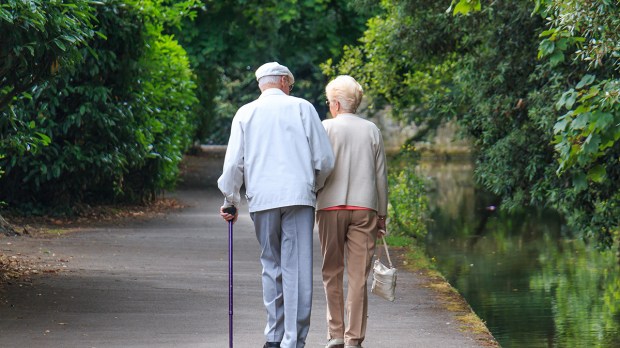Lenten Campaign 2025
This content is free of charge, as are all our articles.
Support us with a donation that is tax-deductible and enable us to continue to reach millions of readers.
New Jersey’s new law which legalizes assisted suicide amounts to an “utter failure of government” to care for the vulnerable, said Bishop James E. Checchio of the Diocese of Metuchen.
“Passage of this law points to the utter failure of government, and indeed all society, to care truly, authentically and humanely for the suffering and vulnerable in our midst, especially those living with an incurable disease as well as the frail elderly, the infirm and those living with disabilities,” wrote Checchio in a letter to his diocese.
The law, the Medical Aid in Dying for the Terminally Ill Act, which went into affect on August 1, allows New Jersey residents with terminal illnesses and less than six months to live to self-administer drugs to end their own lives.
New Jersey joins California, Colorado, Hawaii, Oregon, Washington, Vermont and the District of Columbia in legalizing medically-assisted suicide. The bill passed the Assembly by a 41-33 margin, and the Senate in a 21-16 vote on March 25. It was signed by Democratic Gov. Phil Murphy, a Catholic.
Checchio warned that the new law leaves the elderly particularly vulnerable as they may ““feel undue pressure to view this as an option to prevent being a burden to others.”
As the sponsor of Saint Peter’s University Hospital, the Diocese of Metuchen follows the United States Conference of Catholic Bishops’ Ethical and Religious Directives for Catholic Health Care Services (ERDs), which prohibits euthanasia or assisted suicide.
“Our hospital will not be cooperating with this moral evil,” said Checchio.
“With this law there will be a further desensitization of the value of human life,” said Checchio.
Catholics “are called to show a different approach to death and the dying; one which accompanies every person as they are dying and allows them to love and to be loved to the very end,” he wrote.
Upon signing the bill in March, Gov. Murphy said, “Allowing residents with terminal illnesses to make end-of-life choices for themselves is the right thing to do.”
“By signing this bill today, we are providing terminally ill patients and their families with the humanity, dignity, and respect that they so richly deserve at the most difficult times any of us will face,” he said.

